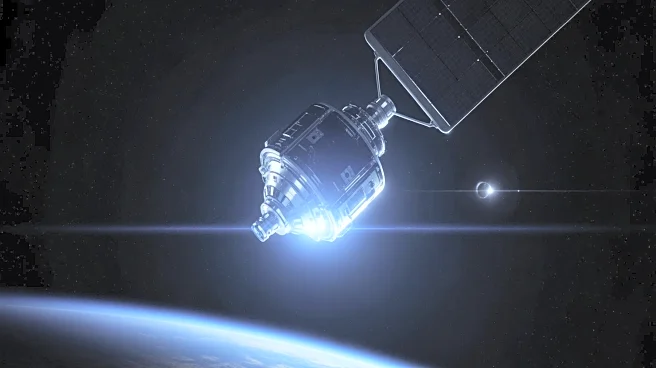What's Happening?
A piece of space debris caused a crack in the window of China's Shenzhou 20 spacecraft, forcing astronauts to remain on the Tiangong space station longer than planned. The incident highlights the growing threat of orbital debris and the need for improved
tracking and removal capabilities. Experts suggest that this event could serve as a wake-up call for risk-reduction measures between China and the United States, potentially leading to increased cooperation between the two leading space powers.
Why It's Important?
The incident underscores the urgent need for international collaboration in addressing space debris, which poses significant risks to both governmental and private space missions. Enhanced cooperation between major spacefaring nations like China and the United States could lead to more effective debris management strategies, reducing the likelihood of future incidents. This cooperation could also foster a more peaceful and collaborative approach to space exploration, benefiting global security and scientific advancement.
What's Next?
China is preparing to launch the Shenzhou 22 spacecraft as a new lifeboat for the Tiangong station. The incident may prompt discussions between Beijing and Washington on establishing joint debris tracking and removal initiatives. Such collaboration could pave the way for broader international agreements on space safety and debris management, potentially involving other spacefaring nations.
Beyond the Headlines
The dual-use nature of debris management systems, which can be repurposed for disabling enemy spacecraft, adds a layer of complexity to international cooperation. Balancing security concerns with the need for collaboration will be crucial in developing effective debris management strategies. The incident may also influence future policy decisions regarding space governance and the ethical responsibilities of nations in ensuring the safety of space missions.















